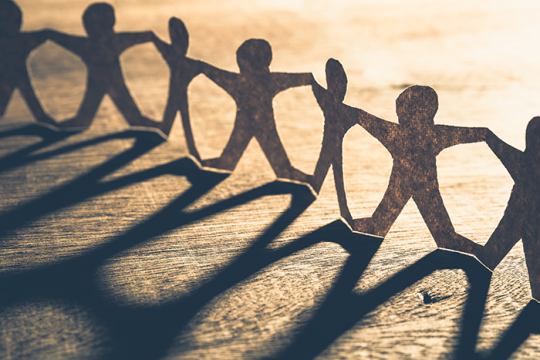
Growing up as the child of two Holocaust survivors, I was always acutely aware of the imperative to stay healthy. In the concentration camps, contracting a disease was tantamount to a death sentence. In my home, a cold was anything but common; a cough would set off alarm bells. I trained myself not to cough in the presence of my parents.
The fear of illness was a constant in my early years because my father had been afflicted with a deadly disease shortly after his liberation from the Mauthausen concentration camp. Tuberculosis was so dreaded in my family that I was forbidden even to utter the word, as if it were a curse.
Back then, it was a curse of sorts because there was no cure for TB, except to surgically remove the damaged lung tissue. Doctors performed that operation on my father, using whiskey for anesthesia. He survived, though left with less than half of one lung.
When my mother was reunited with my father, her fiancé from before the war, he was in a TB sanatorium in Germany. He freed her of her vows, saying he was no longer the same man he’d been before Auschwitz, before Mauthausen, before the unmentionable disease. My mother replied that she would stay with him and moved into a wife’s barrack adjacent to the sanatorium.
Day after day, defying doctors’ warnings that she would likely fall victim to this highly contagious disease, my mother tended to my father’s needs and extended her support to the other men in the ward.
After two years of hospitalization and convalescence, my parents married in Feldafing, a displaced person’s camp in U.S.-occupied Germany, where I was born the following year, in 1948. It would take another three years before he had recovered sufficiently to qualify for an immigration visa to the United States.
We settled in Cleveland, OH, where my father got a job as a drill press operator in a factory. My sister Rosalie was born, and things went well for a time – then one day my father collapsed on a bus and was rushed by ambulance to a hospital.
He was diagnosed with TB and spent the next two years in the Sunny Acres Sanatorium outside of the city. By that time, there was an antibiotic for TB, streptomycin, but my father had a terrible reaction to it, which worsened his condition. I remember coming to visit him after a year, singing him a song I had composed for the occasion.
I spent much of my youth expecting to die from TB or some other ghastly infectious disease.
Every year when I went in for a check-up, the doctor did a tuberculin skin test, and every time, that spot on my arm turned red and itchy. To my mind, that positive result signaled my imminent death. (I still don’t understand why they continued testing me when it was clear that I’d been exposed to the bacteria at some point in my life; maybe it was for research purposes.)
In my teens, I was part of a UCLA experimental study of a drug that would supposedly prevent me from ever contracting TB. Going to the lab by bus was the only regular outing I ever did with my father.
My parents had strange, old-world views of illness causation. I was forbidden to eat popsicles, for example, because they could cause pneumonia. One day I got such a high fever that I had to be rushed to the hospital. And wouldn’t you know it? The day before I had secretly consumed a popsicle!
While I was in the bath one night, my mother noticed a bruise on one of my legs. In a grave voice, she told me that black and blue marks could lead to cancer. As proof, she offered the cautionary tale of poor little Haskeleh, of blessed memory. Truly, it’s a wonder I didn’t become a hypochondriac.
As my father got older, he found it harder and harder to breathe, and living in smoggy Los Angeles didn’t help. One day he went for a walk, and the next thing we heard was that he was in the hospital. ER doctors, not knowing his medical history, pumped him with too much oxygen, resulting in irreversible damage.
After a while, he could no longer breathe on his own, and his doctor advised my mother to end all life-sustaining measures. She refused, reminding the doctor that they were survivors and pleading with him to let her take charge of my father’s care. He agreed, and a ventilator machine was brought into their bedroom. My mother learned how to operate it, woke up several times a night for endotracheal suctioning, and kept him alive in that way for the last nine months of his life.
In this time of COVID-19, my mother will likely spend her upcoming 100th birthday sheltering at home with her caregiver. When I asked her how this tsura (tragedy) is different from the time of Hitler, she told me:
“You have to be hopeful and be grateful for what you have. In the concentration camp and on the death march, I lived on hope. Today I have a home, food, a television, a phone – and hope.”
Amen.
Related Posts

9 Jewish Activities to Try When You’re at Home with Kids

What I Wish I Still Didn’t Understand

